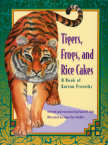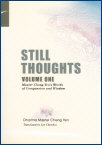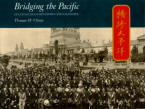|
The AACP Newsletter |
| Asian American Curriculum Project, Inc. - Books for All Ages |
| Since 1970 | AsianAmericanBooks.com | October 2005 |
|
|
|||||||||||||||||||||||||||||||||||
|
A Pioneering Chinese American Journalist and Historian By Mae C. Wong Edited by Leonard Chan |
|
|
We called our brother "T" for Tom. He was 16 years old when our father died. He became the father figure to us five siblings. My oldest sister Sue was married and living in Oregon. T was always a serious guy and I thought a bit dull. He never played with us because he thought we were silly. T only dated one girl in his life. Her name was Daisy and we called her "Dillie." They were engaged for a year before marrying. We all lived together in a big rented house. Both T and Dillie worked and always seem to be involved in a lot of community activities and church services. T was always reading something. He became very interested in Chinese History and Chinese in America. He took some journalism courses and thought he would like to publish a weekly newspaper in English for the Chinese communities. The only publications were in Chinese, so the American-born Chinese never had a chance to connect with their motherland or knew much about Chinese culture. In 1935, T and a staff of eight volunteers began publishing a weekly newspaper called the "Chinese Digest." The newspaper was not just a hobby or business. Their goal was to awaken Chinese everywhere - from the little Chinese communities right up to the biggest ones such as the one in New York City. It was hoped that people would learn from the Chinese Digest of what was going on in different communities, from social events to political issues. They wanted to bring together common interests and intermingle when opportunities arose. A friend offered them office space rent-free. From the beginning, the Digest was under-financed and understaffed. Both problems persisted throughout the paper's existence. The two sources of revenue, subscriptions and advertisements, never reached the level expected and in 1939, the publication ended. T's interest in bringing Chinese from all over to interact and connect never left him. He recruited a few friends to join him in forming an organization dedicated to the history of |
the Chinese in America and in 1963, they founded the Chinese Historical Society (CHS). For a small museum, it was a huge success. CHS acquired many artifacts and received plenty of donations. Today it is called the Chinese Historical Society of America, enjoys a new and prominent location on Clay Street in San Francisco, and is a popular tourist attraction. In 1986 T was asked to write a book on Chinese History and the American-born Chinese. A grant was made possible by a foundation in Hong Kong and it eventually took two years to complete the book titled "Bridging the Pacific." Happy to say, it was very well received. T and his wife Dillie recalled that the most exciting and memorable highlight of their lives occurred in 1982. They received an invitation from President Reagan to attend a State dinner honoring Queen Elizabeth II of England and her husband Prince Phillip. It was held at the Hearst Court of the De Young Museum in Golden Gate Park. During the social hour, the guests were very cordial, introducing themselves to one another. The Rev. Billy Graham and wife chatted with them. There's Shirley Temple Black... Ted Koppel... so many, many more famous faces... over 300!! T had always been a very serious, conservative and quiet person, but he was also a huge 49ers-football fan. When he spotted Joe Montana, the quarterback of the 49ers, he made a beeline over to meet him, grabbed him by the hand and shook it vigorously. He was in 7th heaven! How he wished they allowed cameras and autographs. No one would believe this happened to him without proof! Many days afterwards we were compelled to hear of his meeting Joe Montana over and over again, but not a word about the royal couple and the President of the United States. When we saw T walking towards us, we all scramble off in different directions. Thomas Chinn passed away peacefully in San Francisco on September 11, 1997, one day before his dear Dillie's 3rd anniversary of passing. |
Some of the following books are discounted for subscribers to our newsletter. The discounts on these books end November 20, 2005. | |

|
Tigers, Frogs, and Rice Cakes
By Selected and translated by Daniel D. Holt |

|
STILL THOUGHTS - Volume One
By Dharma Master Cheng Yen |

|
The Chinese in America
By Iris Chang |

|
Bridging the Pacific
By Thomas W. Chinn |

|
Usagi Yojimbo
By Stan Sakai |
Copyright © 2005 by Asian American Curriculum Project, Inc. (a non-profit organization since 1970)
Visit our website at AsianAmericanBooks.com
To unsubscribe simply reply to this email and type "REMOVE" in the subject line.